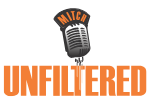Censorship in radio broadcasting is not anything new and has, in fact, been around almost since the very first radio broadcast. As far back as the 1920s, the government established rules or codes of conduct for radio stations to follow in determining what content they could air on their stations. Within a decade, the FCC (Federal Communications Commission) was formed to help monitor and regulate radio station broadcasts.
The Need of Censorship
The primary concern was for the lyrics of songs that might be viewed to encourage negative behavior in teens and younger adults. As such, anything relating to drug or alcohol use and sexual promiscuity was deemed inappropriate. Later, as anti-war protests against the Vietnam War were organized with regular frequency, any songs that weren’t supportive of the war were also deemed inappropriate.
The problem with this type of censorship is that it has always been subjective and, while the FCC is clear that “obscene or profane language” won’t be tolerated on public airwaves, defining the term “obscene” or “profane” has always been a matter of opinion. What was obscene in 1920, for instance, doesn’t raise a single eyebrow in 2018. As a response to this type of criticism, the FCC added that content was to be regulated in accordance with what was considered appropriate by “community standards,” which left the door open to censoring anything the agency found suggestive.
Censorship Today
Little has changed over the years with respect to limiting how the FCC can censor radio stations. The standards set by the FCC and to which radio stations must comply are still vague in defining what is considered inappropriate. In most cases, the radio station and its employees will air a song in good faith, only to find out by communications from the FCC that it defies their community standards. Sometimes, this may result in nothing more than a written reprimand, but, other times, the FCC may fine the radio station.
Since the FCC holds power to shut down any radio station, station managers and program directors act to censor their organizations from the inside. So, it might be said that the FCC doesn’t actually censor any station. Instead, they hold penalties, such as written warnings, fines, and the revocation of broadcast licenses, as a means of getting radio stations to police themselves.



I’m an graying Boeing Engineer who has lived his whole life is Seattle. Just listened to Episodes 0 & 1. So nice to once again hear the voice of the best radio broadcaster the city has ever had. Hope this new venture works out great for you, at least until some (local-I-pray) radio station comes to its senses.